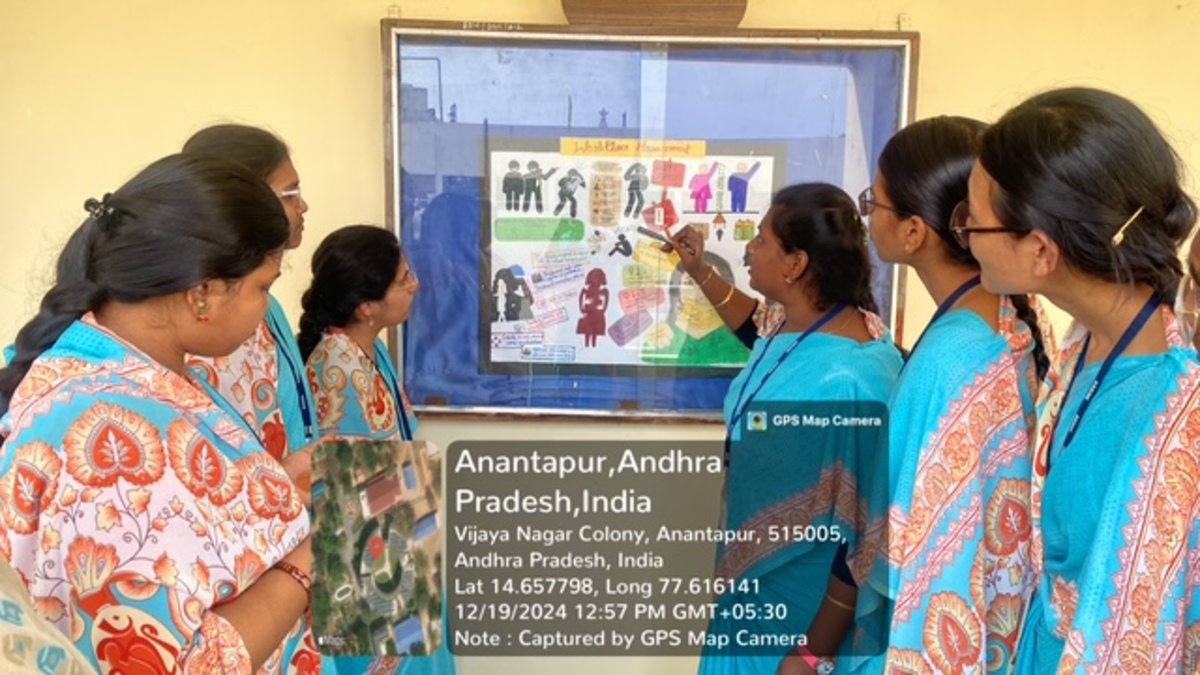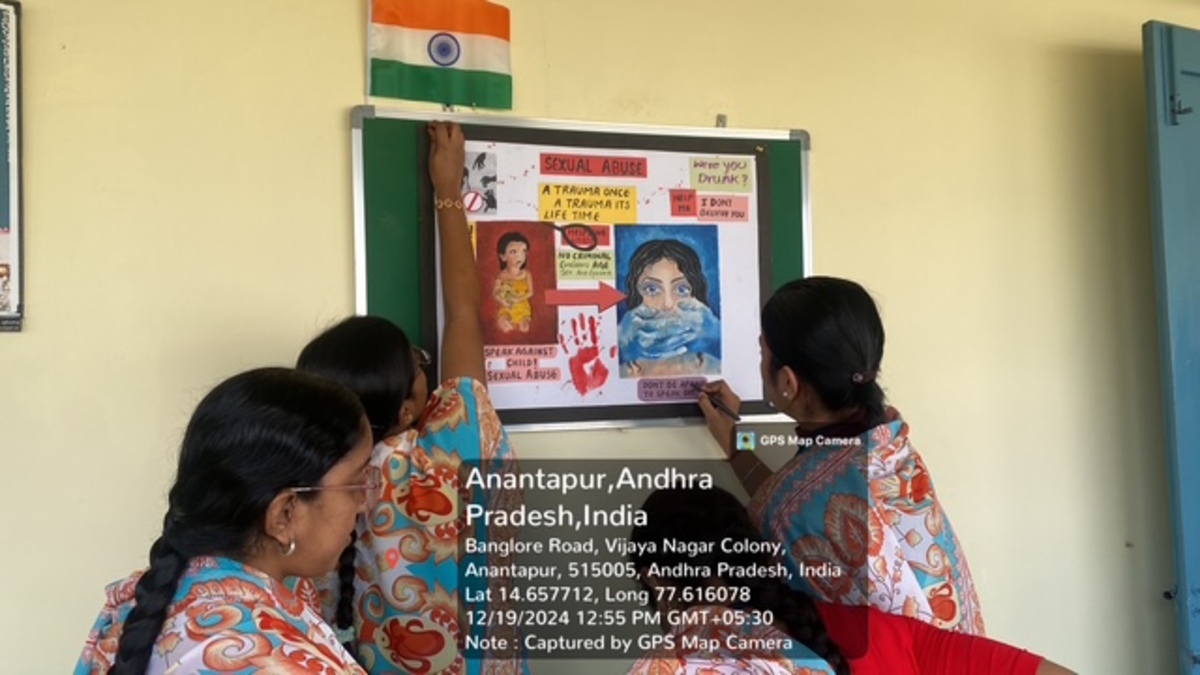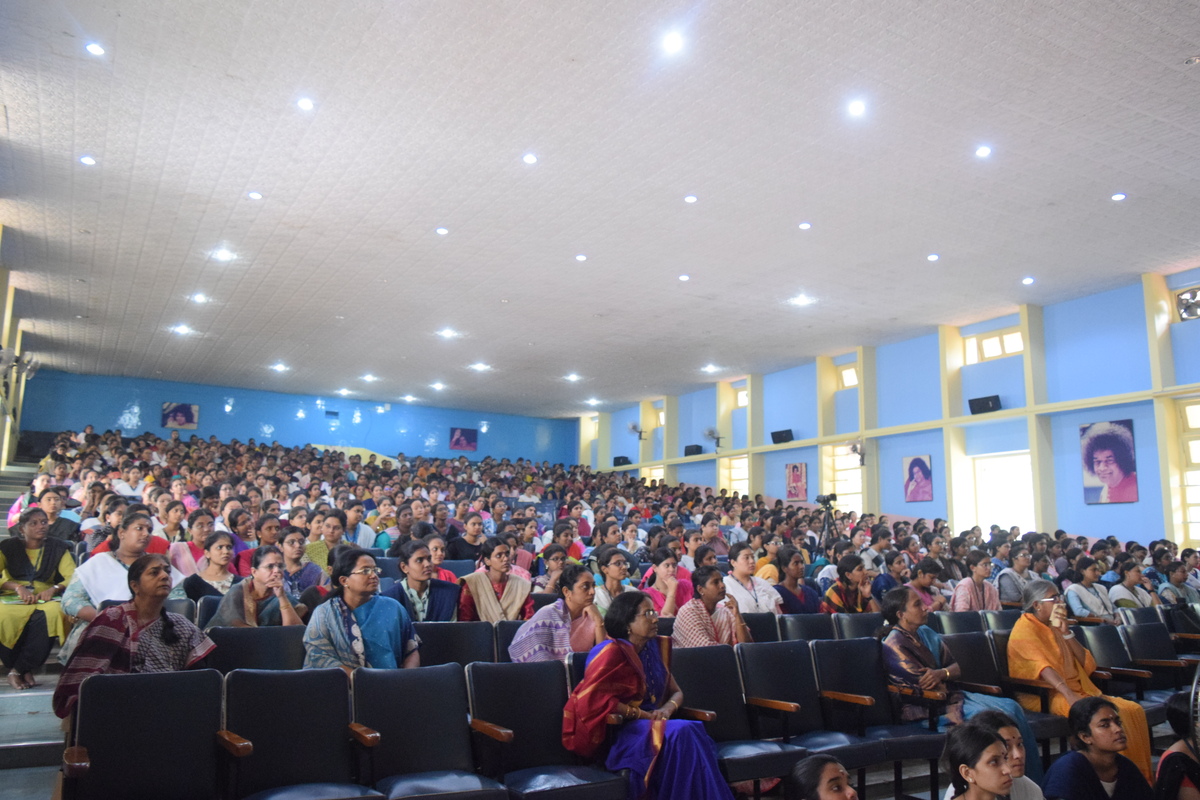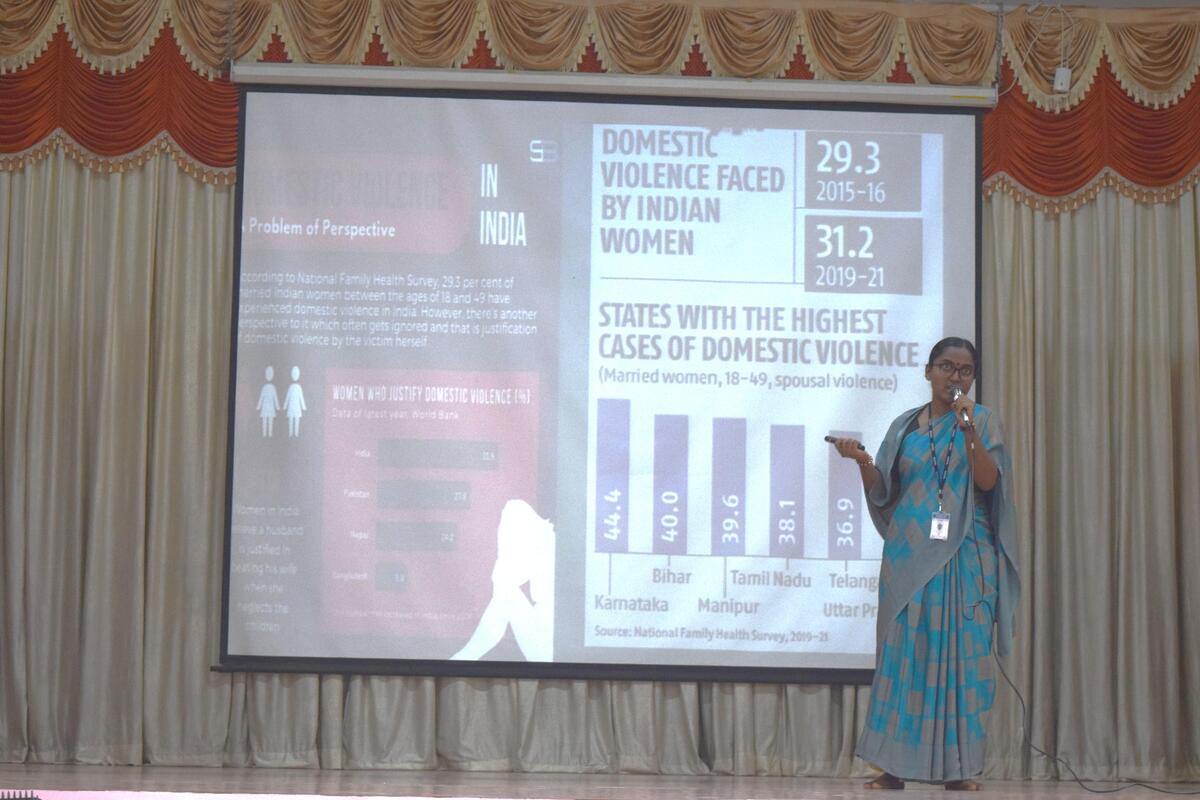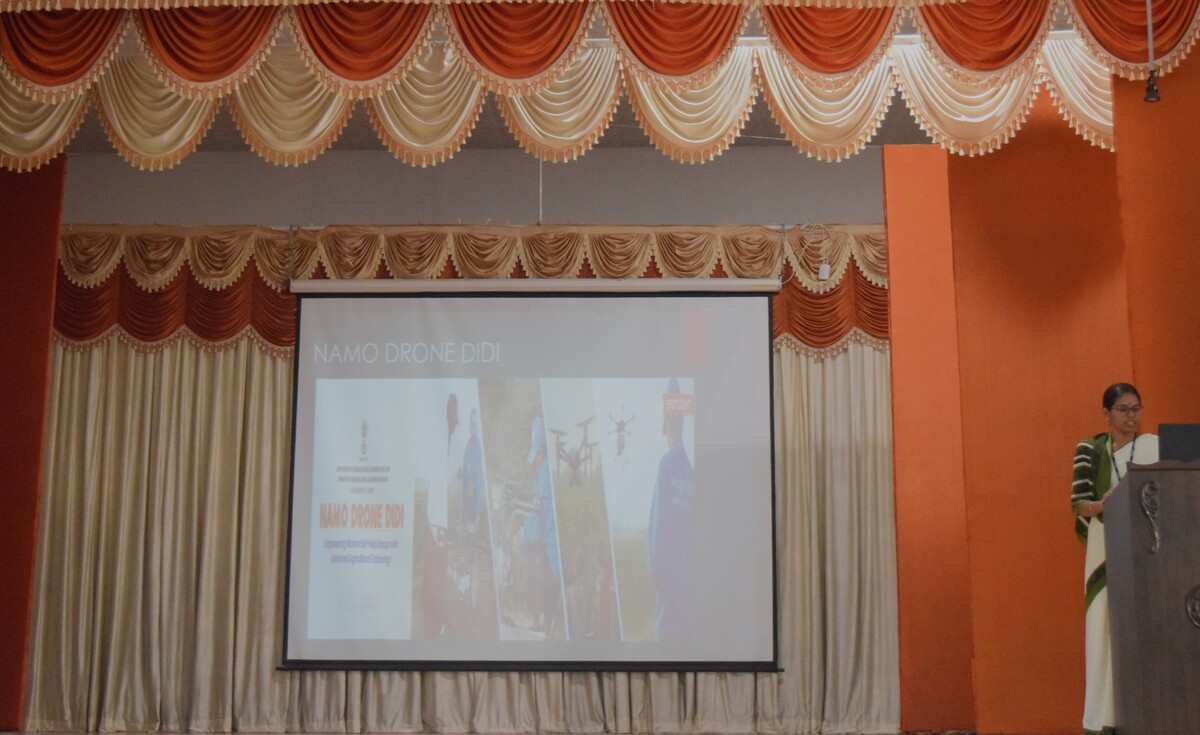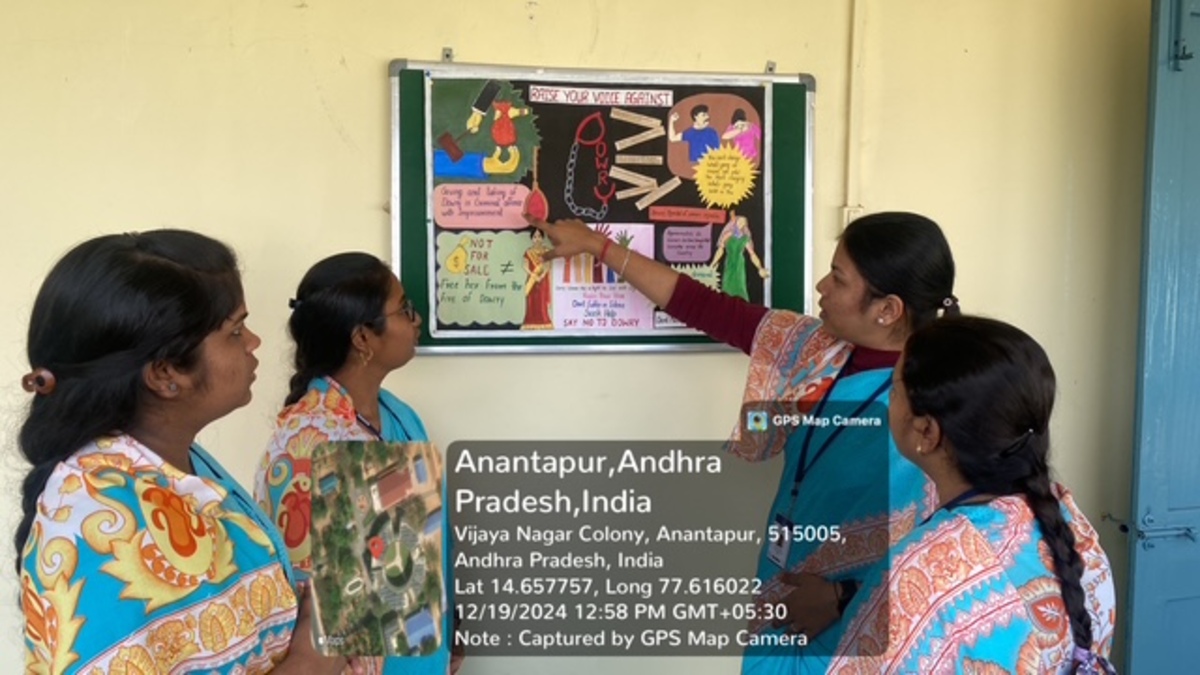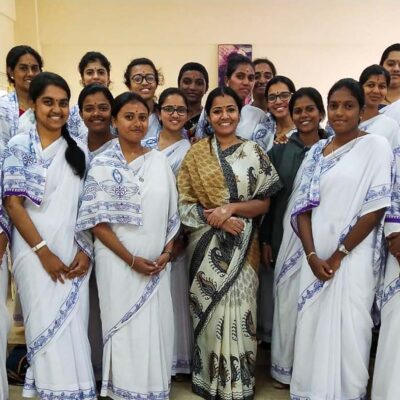As part of the Nayi Chetna 3.0 initiative, launched under the aegis of the Ministry of Rural Development and the National Council for Teacher Education (NCTE), the Department of Education and Gender Sensitization Cell of Sri Sathya Sai Institute of Higher Learning (SSSIHL) jointly organized a comprehensive Gender Awareness Programme at the Anantapur Campus. Spanning two impactful days, the events aimed to transition participants from mere awareness to actionable advocacy against gender-based violence.
Programme Overview
The initiative was designed to sensitize teaching staff, non-teaching staff, contingent staff, research scholars, and students to gender-related issues while inspiring proactive change. The programme included a poster presentation on December 19 and a Gender Awareness and Sensitization session focusing on Gender-Based Violence in the college auditorium on December 20. The event concluded with a powerful “Call to Action Against Gender-Based Violence.”
Highlights of the Programme
Day 1: Poster Presentation (December 19, 2024)
The event began with a poster presentation at the Department of Education. The posters creatively addressed critical issues related to gender-based violence, including dowry, sexual harassment, rape, trafficking, divorce, and sexual abuse. This activity fostered awareness and set the stage for deeper discussions on these poignant issues.
Day 2: Gender Awareness and Sensitization Session (December 20, 2024)
The second day of the programme featured a series of structured presentations and discussions in the college auditorium, focusing on the following themes:
- Introduction to Gender-Related Issues: The session opened with an overview of societal challenges related to gender, particularly those faced by women. Emphasis was placed on the need to address these issues to create an equitable environment for all.
- Violence Against Women: A detailed presentation on alarming statistics from the National Crime Records Bureau (NCRB) highlighted the urgency of combating violence against women. Participants were informed about existing societal and legal frameworks designed to protect women and the need to strengthen these mechanisms.
Contributions of Notable Women: Students shared inspiring stories of remarkable women who have significantly contributed to women’s empowerment, including – Dr. Rukmini Rao, a trailblazer in social work and women’s rights, Sonali Kapoor, an advocate for women’s health and rights, Tria Sheety, a proponent of women’s education and equal opportunities, Tarana Burke and others. These stories served to motivate participants by showcasing tangible examples of impactful advocacy.
Government Schemes for Women Empowerment: Key government initiatives aimed at empowering women were highlighted, including:
- One Stop Centre Scheme: Offering integrated support for women affected by violence
- Namo Drone: A technology-driven initiative to enhance women’s safety
- Swadhar Greh: Providing support and rehabilitation for women in distress. These schemes were presented as valuable resources for addressing women’s safety, economic independence, and social inclusion.
Call to Action: The program concluded with a resounding call to action, urging participants to raise their voices against gender-based violence. Students were encouraged to challenge traditional gender norms, advocate for women’s rights, and contribute to a society free from violence and discrimination.
Impact and Conclusion
The poster presentation and sensitization sessions provided a platform for participants to creatively and critically engage with gender-related issues. By fostering discussions on challenges and solutions, the program reinforced the importance of informed action and collective responsibility.
The “Awareness to Action” program successfully inspired participants to take concrete steps toward eradicating gender-based violence and promoting women’s empowerment. It highlighted the role of future educators and changemakers in advocating for equality and instilling societal change. The event concluded with a vote of thanks to the Ministry of Rural Development, NCTE, and institutional administrators for facilitating such meaningful initiatives.
The program’s success lies in its ability to instill a sense of urgency for action and inspire the participants to envision and contribute to a world where gender equality is not just an aspiration but a lived reality.


